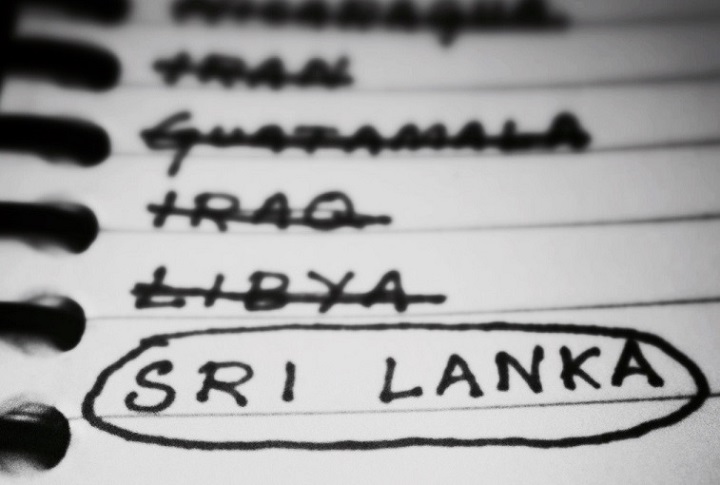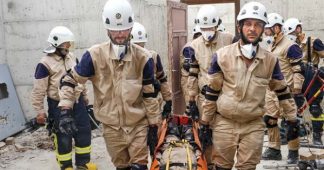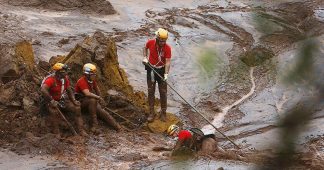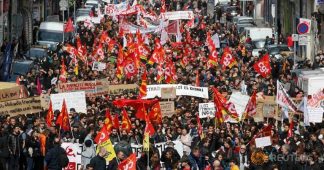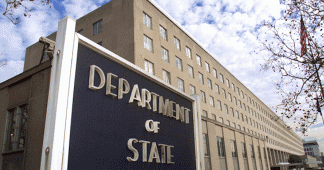By Lasanda Kurukulasuriya*
Recent media reports in Sri Lanka reveal that a $13.7 million USAID-funded program for ‘democracy and accountability’ is to be implemented by a private US company alleged to have links to the CIA. This has raised questions regarding the nature of the government’s relationship with the US.
Development Alternatives Inc. (DAI) is said to be one of the largest US government contractors in the world, particularly active in Latin America. Its subversive role in Venezuelan politics has been thoroughly documented by Eva Golinger in her 2005 book ‘The Chavez Code – Cracking US Intervention in Venezuela.’ Golinger called on Venezuela to expel DAI, which she described as a CIA front and ‘an organization dedicated to destabilizing governments unfavourable to US interests.’
Sri Lanka’s Newsfirst TV channel exposed the company’s alleged CIA links after The Island newspaper, citing sources from the US embassy in Colombo, reported that DAI would ‘work closely with the Parliament, Independent Commissions and related ministries’ to carry out the ‘Strengthening Democratic Governance and Accountability Project (SDGAP).’
‘Good governance’ has been a dominant theme of the ‘unity government’ formed in 2015 by Sri Lanka’s two main rival political parties, the SLFP led by President Maithripala Sirisena, and the UNP led by Prime Minister Ranil Wickremesinghe. The new leadership has pursued closer ties with the West, particularly the US.
In recent years the island’s strategic location, bordering international shipping lanes in the Indian Ocean, has made it a focal point of big-power rivalry in the region. The Chinese have made significant investments in the country’s infrastructure which India, Sri Lanka’s nearest neighbor, seeks to countervail.
Further investigation reveals that this is not the first time DAI and other private US companies have been contracted to carry out USAID ‘projects’ in Sri Lanka:
- In 2008 a contract to implement the USAID-funded ‘Supporting Regional Governance Programme (SuRG)’ was awarded to a company called ARD Inc. The 3 -5 year program’s main focus was Local Government institutions in the Eastern Province.
- A contract to implement a USAID-funded project called ‘Reintegration and Stabilisation in the East and North (RISEN) from 2009 to 2013 was awarded to DAI Inc.
- A contract to implement a USAID-funded project called ‘Increased Responsiveness in the Legal System Project (IRLSP)’ was awarded to a company called Development Professionals Inc. (DPI). Running from 2012 to 2015 it claimed to assist the Government, the Judicial Services Commission and the Judiciary to improve the management and the efficacy of the legal system.
- A contract to implement a USAID-funded programme called ‘Civil Society Initiatives to promote the Rule of Law (CIS.ROL) targeting the Bar Association of Sri Lanka and the Legal Aid Commission, was awarded to a US company called Millennium DPI Partners. Running from 2013 to 2016 its objectives included legal and policy reforms and a ‘strategic plan’ for the BASL.
- USAID’s ‘assistance’ to Parliament began in 2015 with a series of workshops with parliament’s staff and its financial committees, and on the Constitution. The three-year US$ 13.7 million SDGAP, contracted to DAI Inc. – the company alleged to be a CIA front – was a follow-up to the previous shorter programme.
It may be seen that US government-funded ‘projects’ over the past several years run the whole gamut of Sri Lanka’s institutions, including Local Government, the Bar Association, the Judiciary, Parliament and the Constitution. While many citizens agree that there is need for improvement in the country’s democratic institutions, it is a matter of concern that this task is being ‘outsourced,’ outright, to foreign agencies. If programmes are contracted to private US companies, selected by the US government, how can those who implement them be accountable to the people of Sri Lanka?
It’s relevant to note here that Sri Lanka is currently under pressure from the US to implement an unpopular UN resolution (of which the US was the main architect) calling for internal changes widely seen as interference in the affairs of a sovereign state. The new Sri Lanka government took the controversial step of co-sponsoring the resolution, which calls for an ‘international investigation’ into alleged rights abuses by security forces during the war against the separatist Liberation Tigers of Tamil Eelam (LTTE), defeated under the watch of former president Mahinda Rajapaksa.
The octopus-like manner in which the tentacles of US ‘assistance’ have reached every department of government was signaled by US Assistant Secretary Nisha Biswal in her address to a US Congress subcommittee in May, seeking an increased 2017 budgetary allocation for Sri Lanka. “…Our approach to make Sri Lanka’s economy stronger is truly whole-of- government. …. And the Treasury Department will soon embed an advisor in Sri Lanka’s Ministry of Finance, who will assist the ministry with public financial management reforms for the next two years” she said.
There are other reasons too, for concern that the CIA currently has a heightened interest, if not presence, in Sri Lanka. Some US institutes that hosted government representatives for discussions in the recent past, and others which have disbursed funds, are reported to have links to the spy agency.
- In February 2016 Foreign Minister Mangala Samaraweera spoke on ‘Advancing Reconciliation and Democracy’ at the US Institute of Peace in Washington DC. USIP is funded by the US Congress, its board members include the US Secretary of State and Secretary of Defence and the director of the CIA may legally assign officers and employees to the Institute.
- The above event was co-hosted by the right-wing think-tank ‘Heritage Foundation’ and moderated by Lisa Curtis, a former CIA analyst, according to her bio.
- It is alleged that the US government-funded National Endowment for Democracy (NED) and its grantees like the National Democratic Institute (NDI) which disburse funds to a number of NGOs in Sri Lanka, are ‘pass-through’ foundations for CIA William Blum, author of ‘Rogue State – A guide to the world’s only superpower’ quotes Allen Weinstein, who helped draft the legislation establishing NED, saying that “A lot of what we do today was done covertly 25 years ago by the CIA.”
The controversy regarding USAID contractor DAI’s alleged links to the CIA should draw the attention of Sri Lanka’s political leadership to the new reality in espionage: that what used to be done covertly, is now done openly. At a time when a country is desperately trying to attract foreign investment, how ingenious it would seem to embed spies in private ‘companies,’ whose employees would probably travel on business visas, avoiding scrutiny by immigration authorities!
*Lasanda Kurukulasuriya is an independent journalist based in Colombo, Sri Lanka

